Hello and welcome to a set of reviews on the games I have played so far in 2024 (technically starting from my Christmas break in 2023). I want to do this for all the games I was planning on playing throughout the year, and I still intend to, but waiting until the very end of the year to do this would result in way too massive of a list. I also don't want to wait a full year to write about these games. So I've decided to make three review lists throughout the year, in a sort of seasonal approach (yes I am aware there are 4 seasons). These reviews don't follow any particular structure and are spoiler free. I do go into game mechanics and sometimes general narrative / setting, so if you want to experience any of these games totally blind maybe just skip reading out on the ones you want that far.

Ratings breakdown
A quick explainer of how my ratings work. A couple years ago I made a small website called Game Rater that makes small sharable images for game reviews in the style of GamePro magazine. Each category goes from 1 to 5 (5 being the best) and encompasses a handful of elements rather than strictly what the title of it is. What each numerical rating equates to for me can be found on the legend image to the rightabove.
For the numerical ratings themselves 2.5 is what I would consider a baseline, meaning it isn't really bad but it's definitely not good. It's kind of meh and how someone else may feel about it could swing in either a good or bad direction depending on their personal preferences. For what the actual categories encompass, I have a short explainer on the Game Rater website but I'll list what they mean here.
- Gameplay
- Feel, control, and fun.
- Narrative
- Story, presentation, and delivery.
- Visuals
- Graphics, direction, style, and visual flair.
- Music
- Music, sound design, and how it meshes with gameplay.
- X-Factor
- Uniqueness, new ideas, or things that set the game apart.
- Overall
- Taking everything into account, not necessarily an average.
Getting into the games
I had holidays starting a few days before Christmas up until just after the new year. I would be staying with my parents and partner's parents for most of that time, so I brought my Steam Deck with a handful of games that I had bought in the past and yet to play. I always treat this parent holiday stay as a sort of "catch up" time for media that I'm interested in but never got around to. Whether it be movies, games, or plain old TV, the vibes are always great since it's a lot of lounging around in a part of Niagara that's dark and quiet.
Immortality
Immortality was really a fantastic experience. It's a game I have thought a fair bit about since playing it and have grown to appreciate it more over time. I wrote a review that goes into a lot more detail after I finished the game that I actually went back to to write a small edit to what I initially rated the game. One of the main issues I had with the game is that it is very easy to miss content that is important to the story and characters. That being said, the narrative and its presentation are so strong that I wanted to go back and see everything I had not yet seen after being randomly presented the ending, and only partially understanding it because I had missed some very important context. There are also many scenes that aren't necessarily important to the overall plot but have some incredible character building in them. I absolutely love the integration, interpretations, and presentation of religion and its symbols in media, and Immortality by far has my favourite interpretation of Christianity.
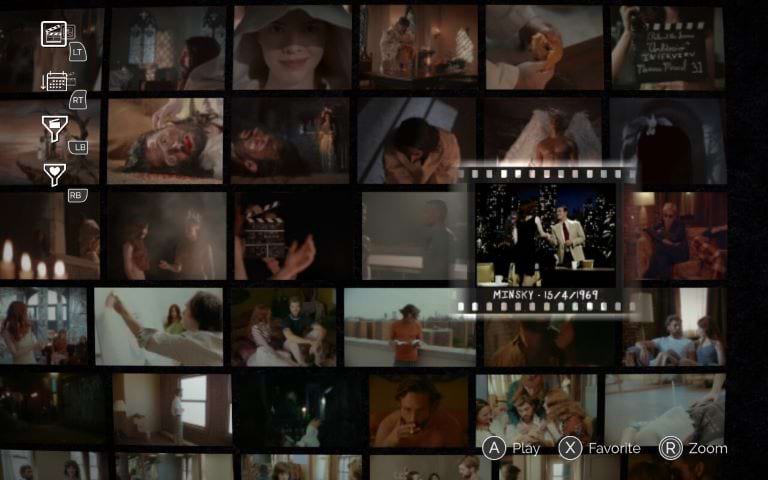
I would say beating this game in two long play sessions, plus a third shorter one to view scenes I had missed prior to the ending, was a bit of a mistake. It is an FMV game and there is a lot video to watch. I was so hooked during my first play session that I ended up going for about five hours before stopping. If I had paced the following play session out a bit more there's a reasonable chance I would have enjoyed the later bits a bit more. I will say playing this game on a Steam Deck was, to my surprise, a fantastic experience. Lying in bed and watching parts of movies was a great time, and the control scheme matched so well to the layout of the deck.
I 100% recommend playing Immortality. I understand some people not being into it or potentially even disliking it, but you won't know until you try it. It greatly benefits from actually seeing most if not all of what it has to offer, but that can be a lot to ask since it's hours upon hours of video footage. Being the first game I played on my holiday and it being something so fresh, cool, and different, it really inspired me to go on a binge of games. I feel like it's been a while since I've played single player games and I definitely have been missing out on a lot of truly great stuff.
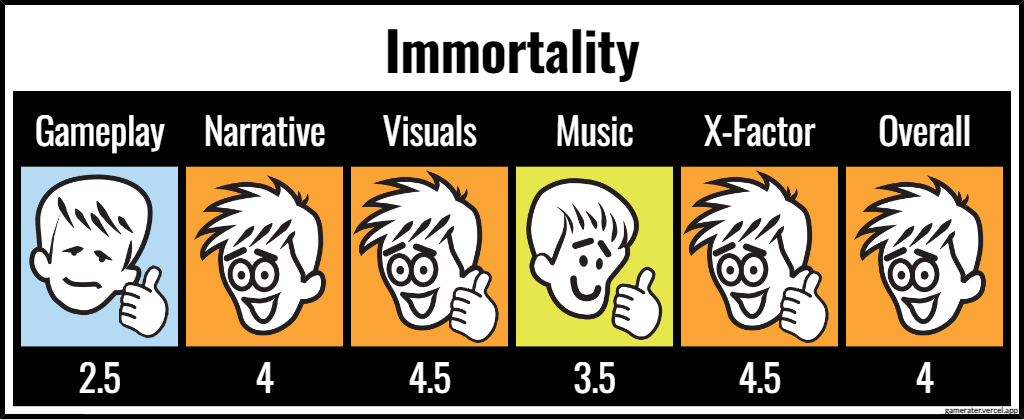
Pony Island
Pony Island is Daniel Mullins' first full release game, and something that has been in my backlog after I was first introduced to his work through Inscryption. He has such a specific style in the way he writes and the style of game he makes, that is was really cool to play through his first fully realized idea. In Pony Island you are trapped inside a computer possessed by the devil himself. You have to hack into user accounts, chat with other trapped souls, and ultimately need to hack your way out of the malevolent machine.
In addition to figuring out how to navigate the computer, the game has puzzles based around manipulating assembly code to solve problems you're presented. The game does a fantastic job at introducing new concepts to you as well as switching up how they are presented keeping the puzzles feeling fresh each time. The way these work feels a lot like how the card game in Inscryption works. I haven't played many of his other games (aside from some of his game jam stuff), but I get a sense that he really likes this sort of instruction based gameplay. Things move in a very rigid and predictable way and you need to figure out how to set them up for success.
Overall I had a great time with the game, and while short, felt like it gave me everything it needed to. I dabbled a bit into the additional content that seems to lead into some sort of ARG, but I didn't dive hard into it like I did with Inscryption. From what I looked into it doesn't have nearly as much thats hidden in it, but it's there if you want it.
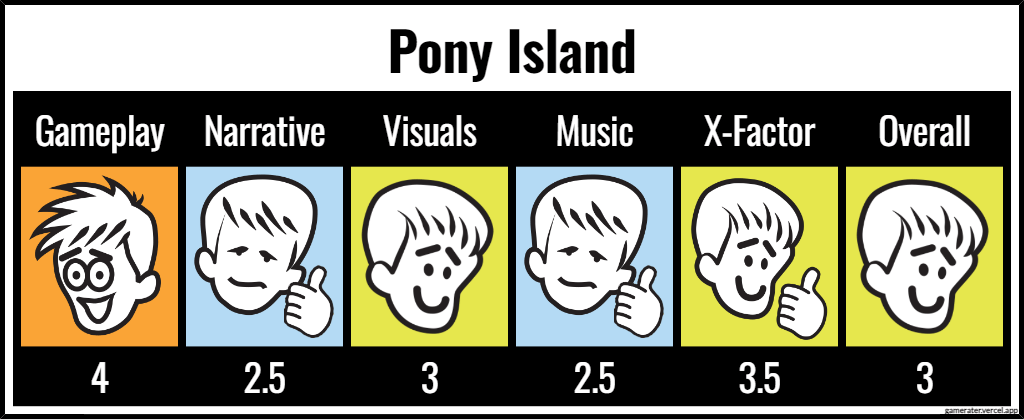
VVVVVV
I bought VVVVVV roughly 1 million years ago, played for 37 minutes, and then never touched again. I'm not exactly sure why I didn't continue it, maybe I just wasn't feeling it. I was in second year of college at the time and very into Path of Exile, Team Fortress 2, and Magic the Gathering, so I probably just wanted to jam those games instead. Regardless, I decided to finally play through it since I wanted something short and low effort to play. And I have to say it delivered on both those fronts. It certainly feels like an indie game from 2010, which while isn't a negative, definitely elicits a specific kind of vibe and feel.
The main mechanic of inverting gravity instead of jumping is a cool idea, but isn't really that different or far out there. The platforming has the right level of challenge and a few of the optional hidden items to get are quite difficult. It's certainly the kind of game you try for the challenge of the platforming rather than anything else.
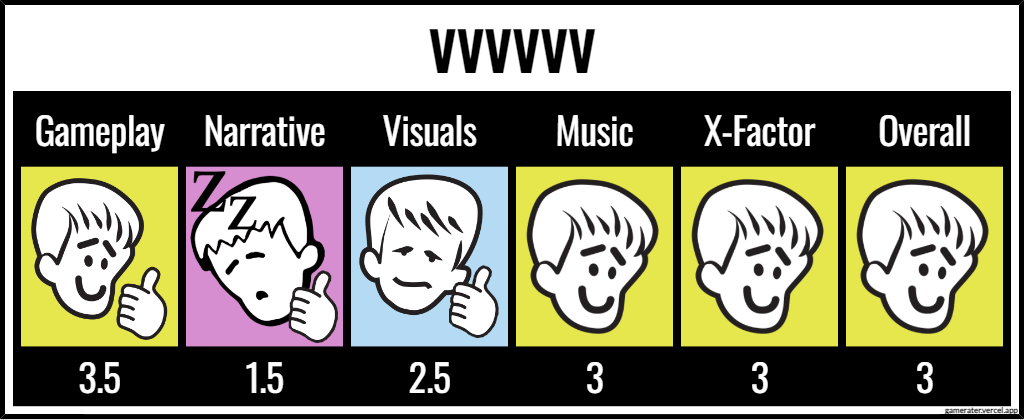
Her Story
Her Story is Sam Barlow's (creator of Immortality) first indie game. It's an FMV game where you are at a computer loaded with a database of police interview tapes in regards to the murder of a woman's husband. To search the records in the database you must present queries of words in which you are presented a list of maximum 5 results based on the transcript of the clip, which you can then watch through. There is no specific end goal to accomplish going through the tapes other than understanding the motivations of the person being interviewed.
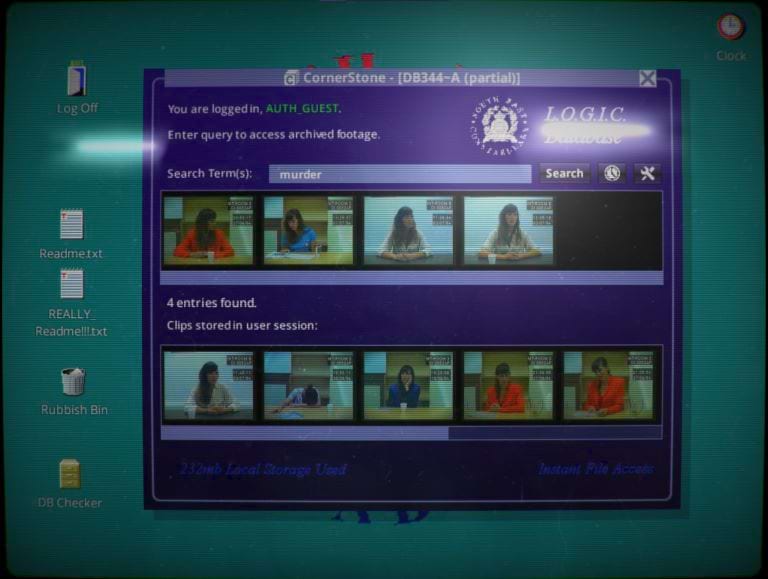
The querying system for the tapes is an awesome way to break up the story and make the way you learn about this person's life non-linear. It was a ton of fun to watch through a tape and coming up with search terms for specific threads I wanted to try and find more footage of. I actually used a piece of paper to write down the words for specific pieces of information I wanted to search for while watching through a tape. Sometimes the terms would yield little to nothing interesting to follow, and other times it would be a goldmine for very a specific set of videos. Having all the tapes be generally 30-90 seconds long was also a great relief as nothing would end up feeling like it dragged on. There are a handful of clips there are only a couple seconds long with the women saying something like "No" with different tones, which I found pretty entertaining. The story itself is quite terse and did a great job at keeping me invested to continue doing detective work.
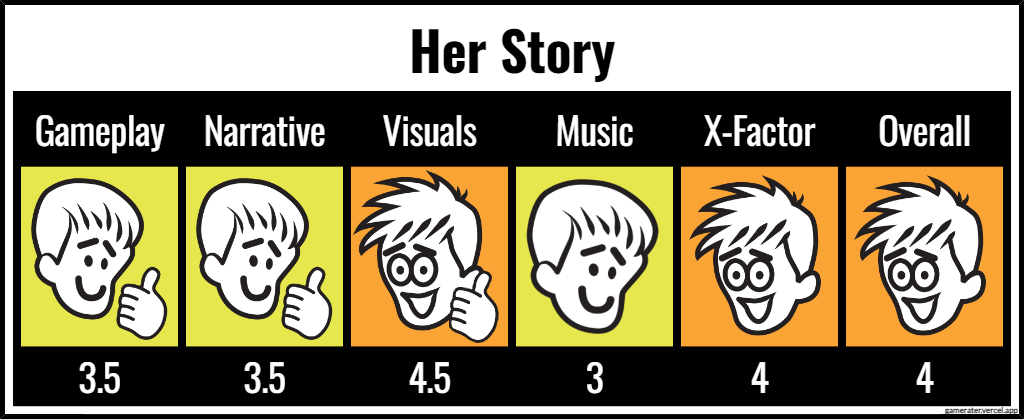
Cocoon
I gotta say this game was definitely one of the biggest let downs for me in recent times. It's a puzzle game where the concept is that you have these orbs that inside of them contain a different world than the one you currently are in. At certain waypoints you have the ability to jump inside of that world, and jump back out to the one you previously were in. You can carry the orbs and place them into pedestals to use them as keys for various doors, elevators, or whatever may act as a lock. They also have a function beyond that as each one has a function that can reveal or alter pathways. Where things get crazy is the fact that you can carry one of those orbs into another orb, nesting one world within another giving multiple layers to jump through.
Does this sound mind bending and cool as hell? Well, it is. And that's not my issue with the game. I think the concept is extremely cool and has the potential for making some pretty incredible puzzles. The problem I had was that the progression through the game which was gated by puzzles revolving around the orbs was really very linear. Most of the puzzles in the game really only had one option for you to try to solve them. I don't mean this in a "oh there was only one solution to the puzzle" kind of way. What I mean is that given the circumstances on what is presented to you, you only have one action you can take in the game to progress, where in most puzzles have multiple that may not yield a result. I kept thinking that this style of puzzle progression would change each time I acquired a new orb, but sometime after the third I realized that this wouldn't be the case. To be totally fair, this is not the case for the entire game. There are some sections where I stumbled, but they were far and few between. After finding the fourth orb the puzzles got a lot better and started requiring much more forethought than their predecessors, but unfortunately, that was the last 10-20% of the game.
The lead designer of the game was the same person who worked on Limbo and Inside. I've played both of those games, and remember liking both (Limbo more so). The mood and presentation of them I found a lot more attractive in a game rather than Cocoon. Cocoon's visuals and atmosphere felt very sterile to me, the environments being very flat and unremarkable. It has been a very long time since I've touched Limbo or Inside so maybe this kind of game is something I just don't vibe with anymore.
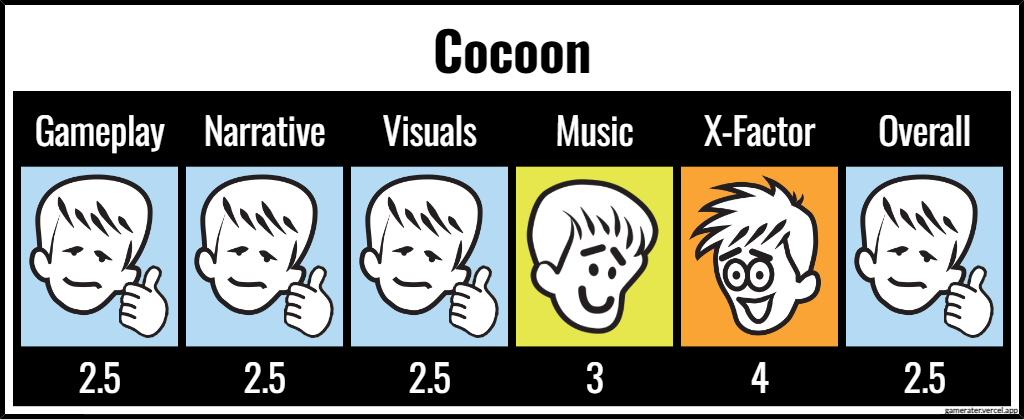
Alan Wake Remastered
I was really curious about Alan Wake 2. From a handful of different factors, such as the Game Awards or co-workers talking about the game, something was drawing me in and I had a growing desire to play the game. My only issue was that I had not played the first Alan Wake, and I didn't actually know anything about the series. Mid December I put out a general ask to my co-workers who have played both Alan Wake and Alan Wake 2 whether I would have needed to play the first to be able to play (or just understand) the second. The general consensus was that I don't need to, but I should watch a story summary video for the first game.
Being not entirely convinced, I took to the internet to find more answers. Naturally I stumbled upon a Reddit thread asking the same question: What do I NEED to play?. After perusing a few opinionated answers, someone gave a very comprehensive list on basically all the Alan Wake media prior to the Alan Wake 2. From this I learned that not only do the other Remedy games all live within the same world as each other, but that there was a mini-series released prior to the first Alan Wake as an ad campaign that was a lead in to the story. This 35 minute 6 part show was a perfect way to dip my toes into the water and decide if I should just read about the story or play the games prior to playing Alan Wake 2. I started the show and was immediately sold on it. The show is totally what I'm into and I knew from the first episode that I wanted to jump fully into the series of games. Epic Games had their holiday sale going on at the time, and Alan Wake 2 not only was 20% off, but included a free copy of Alan Wake Remastered. On top of that Epic always gives out a $15 coupon each holiday sale, and I already owned a copy of Control from a previous Epic Games holiday give away. I somehow was managed to get everything I would want to play in the series for less than $50. With all that, I was ready to immerse myself with playing through the series and recommended related games.
With all of that context out of the way, I have to say, this game was truly a dark horse. I did not expect to end up loving this game as much as I do. Before starting it, I thought there was no way it could possibly capture what I had envisioned from the Bright Falls mini-series, and that it was going to be a reasonably generic Xbox 360 era game that would provide me with the context I needed for story of future games. Funnily enough, that's almost exactly what it ended up being. The gameplay is some fairly run of the mill third person action-shooter with light puzzle solving peppered in. The game does a good job at keeping things interesting gameplay wise up until maybe two thirds of the way in where it starts to feel like a bit more of a slog. It's starts to feel like it's dragging on a bit because of it, but I will say there are still cool ideas and fun moments up until the end.
It's hard to talk about this game without talking about where it obviously draws a lot of inspiration from. The setting and tone feel set to the tune of Twin Peaks. Both are set in a small logging town in some flyover state in the U.S.A. where everyone knows each other and has an upbeat attitude. While seemingly friendly and harmless, there are dark, mysterious, and supernatural forces at play. The main collectable being coffee canisters feels like a nod to Agent Dale Cooper being obsessed with it. Log lady even has a counterpart in lamp lady. It's hard to compare the two too much more than that without getting into any sort of spoilers, so I'll just leave the comparisons at that.
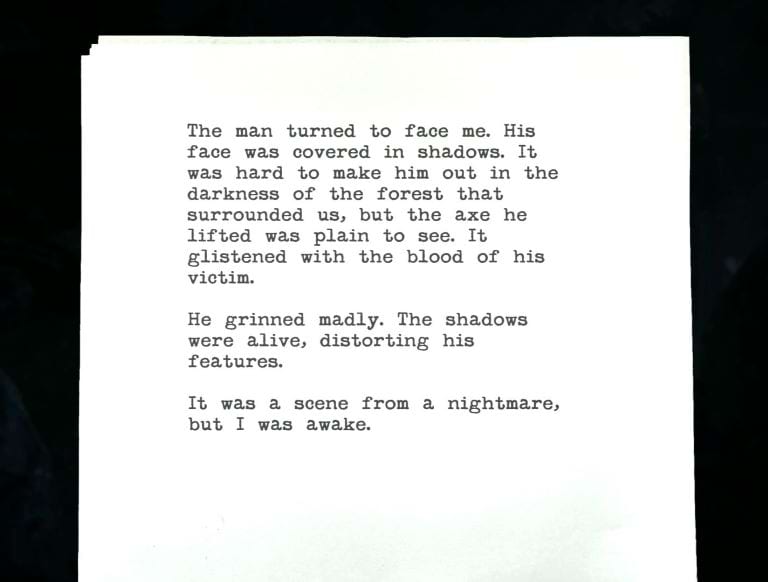
What I enjoyed most about Alan Wake was how the story develops and is presented to you. Alan is a successful and famous author and goes on a vacation in the small town of Bright Falls with his wife, but after arriving some shit happens and his wife goes missing. After the opening events of the game, you find yourself in the woods needing to get back to town. It is then, presented to you on your path, the first of many of a collectable in the game; a manuscript page. Viewing the page reveals part of story written by typewriter and credited with Alan Wake's name, all the while Alan is dictating what is written on it. This is your introduction to how the game sends you information about events that have yet to happen. Yes, the pages you find in the game along your journey are actually stylized written events of things that have yet to happen. I absolutely loved this. Reading parts of a horror story and then thinking "oh man when is this gonna happen" was such a cool experience. Many of the manuscript pages were in plain sight for you to find, but there are ones more hidden off the main path that give you a deeper insight into other parts of the story that don't relate directly to the gameplay.
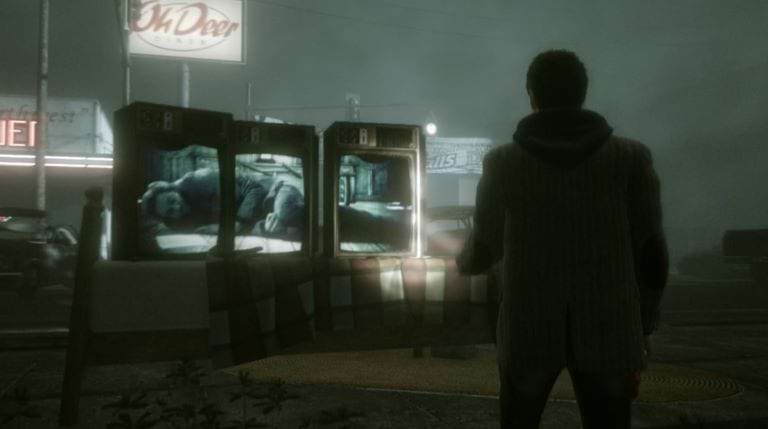
The manuscript pages are only one of the story elements that I found super enjoyable. Naturally there a TVs that are strewn throughout the town of Bright Falls, whether it be in someones house, the diner, police station, you get the idea. Occasionally as you are progressing through the game a live action Alan will pop up on these TVs, sitting at a desk writing on a typewriter, speaking aloud what he is writing. Kinda the same thing of presenting what is yet to come to you but just in a different form factor. The further you progress into the the game the more frantic these sightings feel, sometimes with Alan (on the TV) getting closer to the screen as if he can feel or see someone watching him.
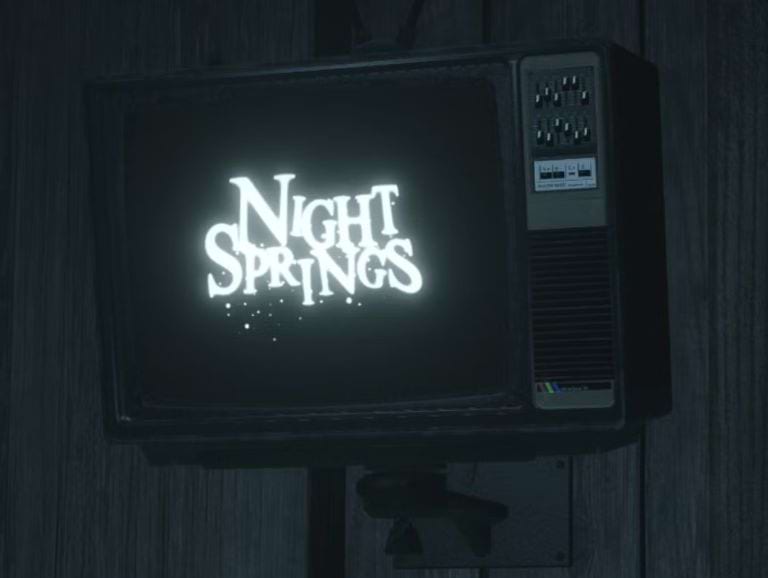
Speaking of TVs, some of the collectibles in the game are actually watching episodes of a fictional live action show called "Night Springs" on hidden TVs. They are 3-4 minute long shorts that mimic the format of The Twilight Zone. They're all quite silly and can be quite funny and entertaining. They all have off sync audio compared to the lips of the actors giving a dubbed over feel to them. In addition to this, there are radios that you can find and tune giving you a portion of a radio show from the local disc jockey. They generally recount events that have happened of the bad things that have been going on in town. The host is always calm and has a very gentle voice, and always ends with playing a song. These often offer a different feel to the current events in the game and can are nice to just listen to and vibe to the music before continuing on with the game. One last item I you can find that I wanted to talk about were actually something added to the Remastered version of th game. There are a handful of QR codes in the game that when scanned link to an unlisted youtube video of Alan Wake at a typewriter speaking aloud something he's writing. These don't serve any functional purpose to the story but are teasers to Alan Wake 2. Not only do I love the way he gives the story but I'm a huge fan of mixed media in video games.
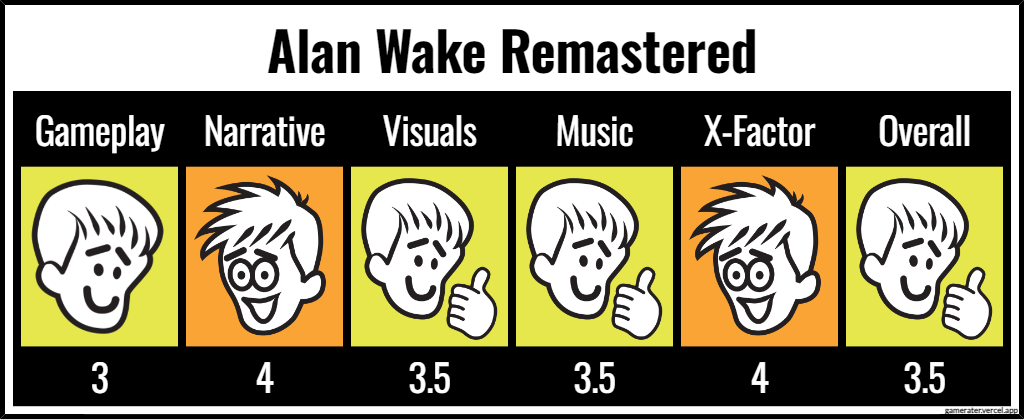
Journey
Journey is one of those indie games that I feel like everyone knows about. It's from that burgeoning era of indie games where it wasn't as easy to make or publish a game without a large studio, but were starting to crop up more. And even after all these years, holy shit this game holds up incredibly well.
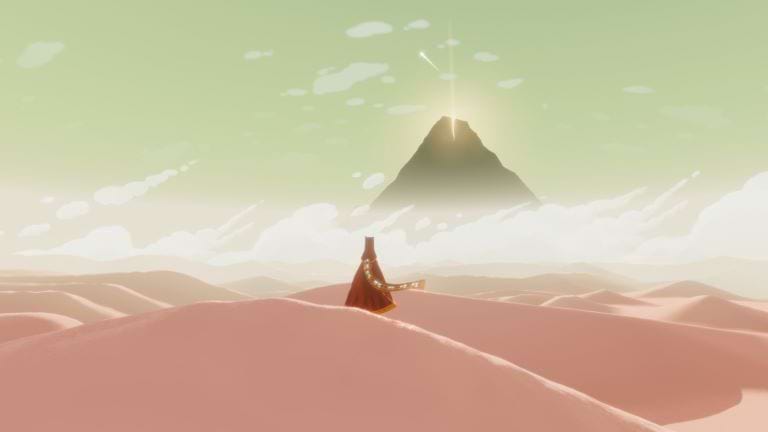
This game was an unexpectedly beautiful experience. I knew it was essentially an atmospheric walking simulator, but I somehow had never heard the fact that the game is actually an online co-op experience. The first time I encountered another traveler, they came up to me and starting singing in excitement. Having been the first time I had seen someone and didn't know it was online multiplayer, I responded by jumping around and singing as well. They started doing the same and we spent maybe 5 minutes doing this. All I could think of while this was happening was: "wow, this AI seems weirdly good at mimicking what I'm doing". I pressed onward and the other traveler followed for a bit but we parted ways pretty shortly after. This happened another few times during my journey. A couple of the times we actually ended up spending a fair bit of time together progressing through parts of the world. The one section where you have to ascend a spiral tower I did entirely with a friend, which at the time, I thought was an NPC meant to be there to help me.
It wasn't until after I had beaten the game and told some friends that I had just beaten it that I learned those were real people. It even shows you the list of names at the end of your journey, but I just thought those were the in game names of NPCs I had discovered. I'm honestly pretty amazed that roughly 4 years after Journey was released on steam I ran into multiple other travelers. I wish I had played on launch when many people would have been playing it. I can only imagine that experience was really fucking cool.
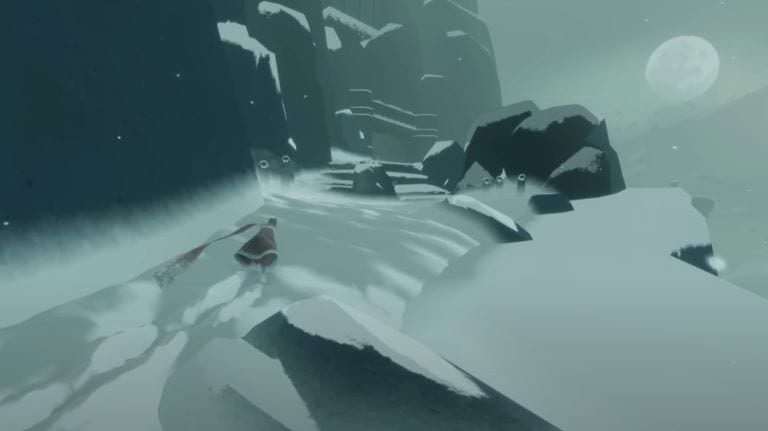
All the player relevant stuff aside, the actual gameplay is also really amazing. The environments are gorgeous, the ambience of the music does a great job at setting the mood, and while simple, the game controls very well. They do a fantastic job at making you feel at odds with the harsher environments when you are traversing through them. It starts off very chill and you get to move through the world at your own pace, but the farther into the journey you get the harsher the world gets. You get less time to relax and enjoy yourself since the biome you're in starts pushing back against you. Whether it's wind, snow, these weird creatures that swoop down from above at you, the world slowly becomes more cruel towards you. Despite all this, I was always compelled to march forward.
Journey is definitely a game that wants you to come back to it. Being nice solid 2 hour-ish play through also makes it more attractive to revisit. I 100% plan on playing it again in the future, and I think it would be really cool to do that with a friend and dedicated travel buddy.
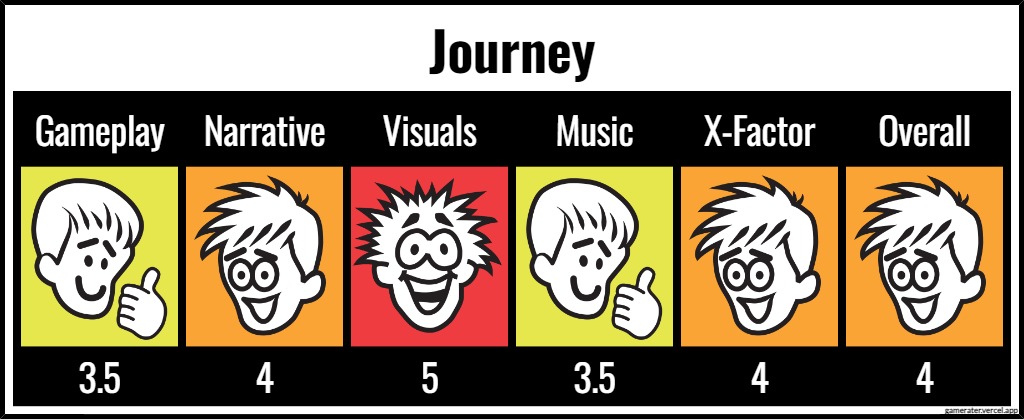
Control
As stated in my Alan Wake Remastered review, Control was part of my pre-requisite list of games and media to go through before playing Alan Wake 2. I had pretty high hopes for the game as I knew it was held in high regards and so far I've been very impressed with what I had seen in previous works of the studio. I jumped into the game pretty shortly after finishing Alan Wake Remastered and was near instantaneously hooked.
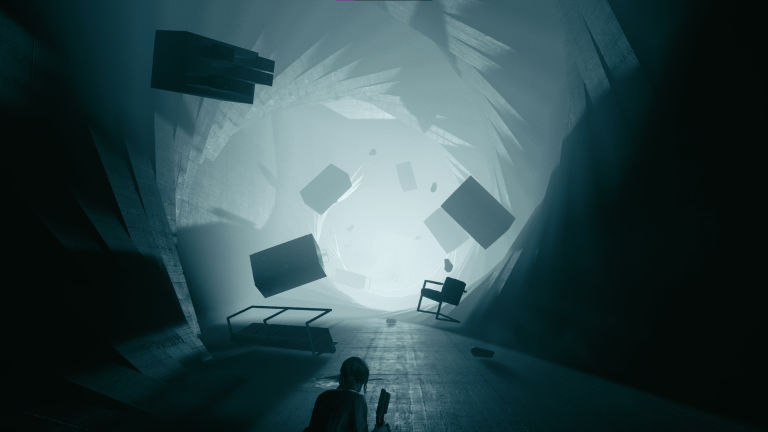
At it's core Control is a third person action-shooter game. It takes place entirely inside the Federal Bureau of Control (FBC), a brutalist government skyscraper. The FBC studies and covers up altered world events (AWE), which are paranormal events that take place in the world. Pretty much just like SCPs in our real world (not that I believe in them). At the heart of these AWEs are often what are referred to as Objects of Power (OoP) or Altered Items, which are everyday objects that have paranormal qualities to them. Wether they are a traffic light that can physically displace you when it's red, or a rubber duck that moves when you aren't looking at, they all are a little bit goofy in their own way.
Everything about this game is well made. From the gameplay, to the audio and visuals, the writing and the story, it all just is superbly done and meshes together so well to create a truly complete package. I like it so much that I genuinely am not sure how to write about this game for someone who has not played it. I kind of want to just ramble about the things I enjoyed and what I liked about it.
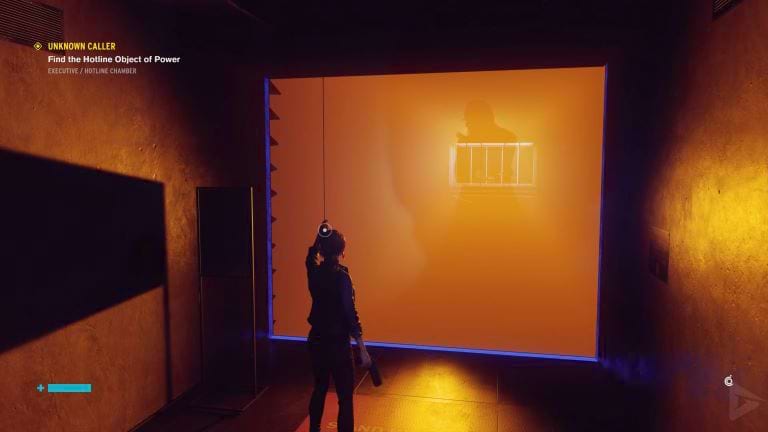
First off, the visuals in this game are stunning. Aside from the graphics just being good, the visual direction is incredible. The dark grainy and muted tones of the environment cut with the brightness of different areas and phenomena that occur in the game do an outstanding job at evoking the feeling of being trapped in a drab government building where crazy shit can happen at a moments notice. That combined with the subtle film grain and silhouetted character monologue overlays give the occasional film noir-esque feel to it. While all floors and areas of the building are part of the same government entity, each wing of the FBC has its own style keeping them distinct enough from one another that you never feel like you're wandering around the same section as before. The UI is quite minimal and while I like it generally, something feels as if it's missing from it. That's really my only negative for the visuals of the game.
The audio design and sound effects in the game are fantastic. In particular the background noise in certain areas of the FBC is something that has been drilled into my brain. There are people who are harmlessly floating around parts of the building, and they give of a sort of indistinct chatter. It's what you would hear working in a room full of people without paying attention to any specific conversation. It does an amazing job at making you feel the madness and constant noise of working at a large company.

Collectables in this game are various letters, VHS and cassette tapes, internal government documents, pretty much anything that would be used by a government agency to store and send data internally or be sent from an external source. They provide an absolute ton of flavour to the world around you and what goes on inside the FBC. It ranges from anything to important information about an Object of Power or some stupid letter a civilian sent to about something that happened to them that could be the result of an Altered Item or AWE. Many of them are just plain funny and can even have a small sub-story that spans across a handful of correspondence you might find. For example, I found a set of internal memos between co-workers about a poker group they had set up. Someone was convinced another person was cheating and after some back and forth they ultimately got kicked out of the group. It isn't anything ground breaking or amazing but I love the small details that are added to give insight to the lives of the people who work at the FBC, some of them are just Joe Schmoes with a job.
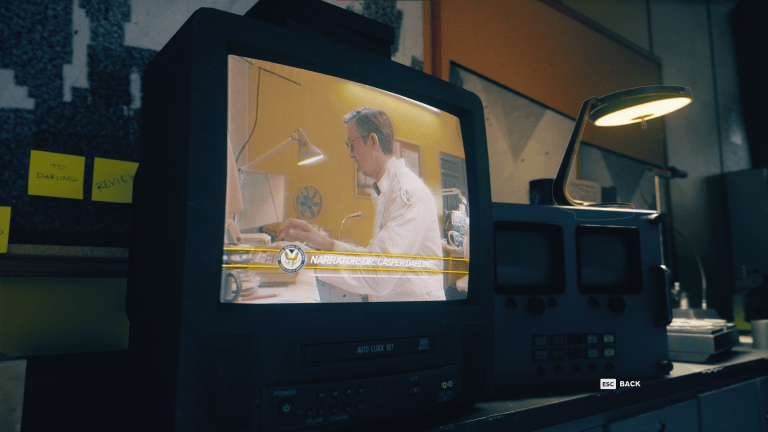
Control also has a similar collectable to that of Alan Wake where there are TVs in the FBC with tapes you can watch. Sometimes they are TVs that have a full screen takeover and sometimes they're more naturally in the environment and you can either walk on by or stand there and watch it. Often there are projectors that are laid out amongst chairs in meeting rooms making it more difficult to not notice or walk by. They often provide more critical information to the context of the story so I appreciate them being more visible while still maintaining a realism to the environment.
I absolutely adore this game. It is very fun and has so much personality. I don't replay games very often anymore but I can totally see exploring this game again in the future. All of the content Control has to offer really made me smile and I enjoyed pretty much every second playing this game. Between reading the case files and correspondence, watching the multimedia, containing the objects of power and altered items, and all of the optional character dialogue, there is so much that I can't possibly remember everything and will for sure have forgotten and be delighted by again.
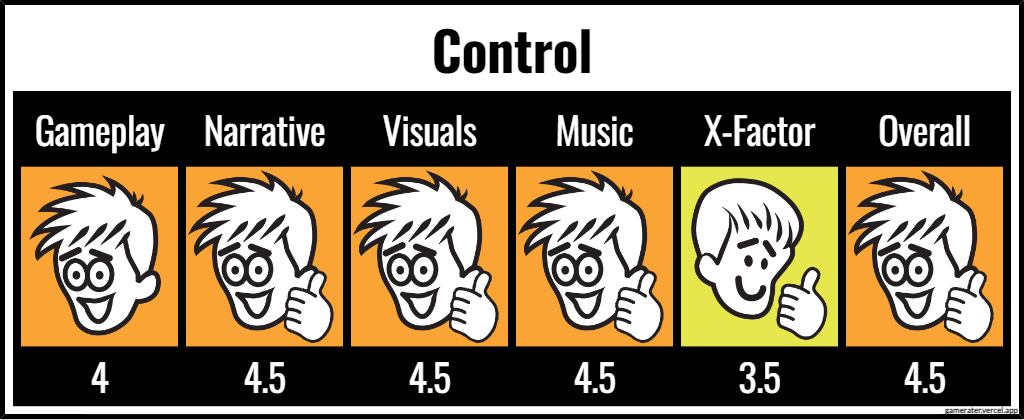
Celeste 64
Celeste is one of my all time favourite games, and the team at EXOK sometimes make a small game to celebrate the anniversary of Celeste's release. Celeste 64 was released to celebrate Celeste's sixth anniversary and is made to mimic the style of Nintendo 64 era 3D platformers. You have the same basic gameplay elements of dashing and climbing found in the original game, but you are now collecting strawberries hidden throughout a small 3D world similar to what you would find inside a painting in Super Mario 64.
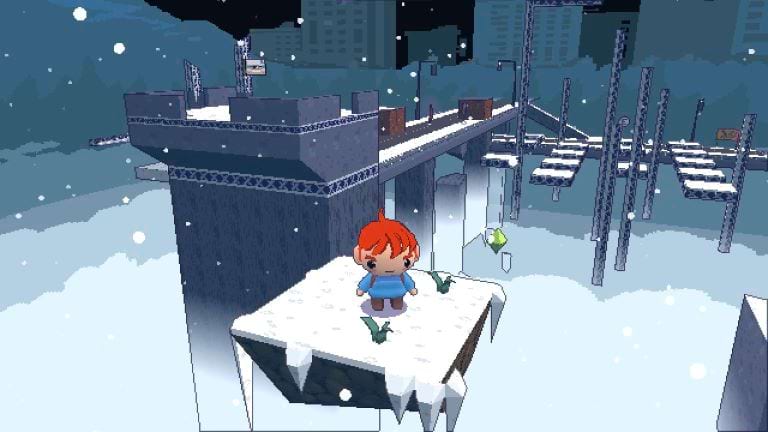
Dashing in the game can be a little unwieldy and doesn't feel nearly as smooth as its 2D counterpart. Although, it is hard to be that nit-picky about the feel of it when the game was made by the team in a week. The world has a fair bit to explore and offers some great short platforming segments leading to strawberries. There are actually a fair amount to find, and some are hidden very well. I didn't find 3 of the 30 total strawberries in the game. The visual style totally captures the early 3D aesthetic of games. I wish I could see how it looks on a CRT, I can only imagine how cool it is. Overall the game offers a great 1-2 hour playthrough and is definitely something I would recommend checking out if you are into 3D platformers.
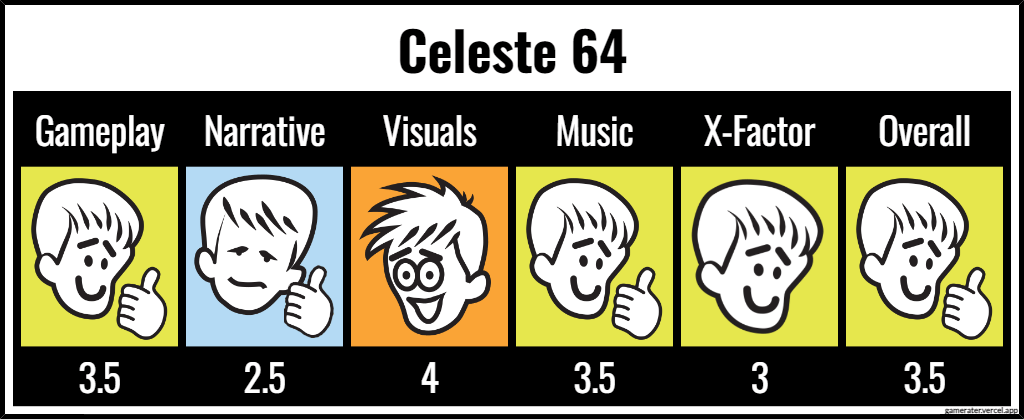
Bat Boy
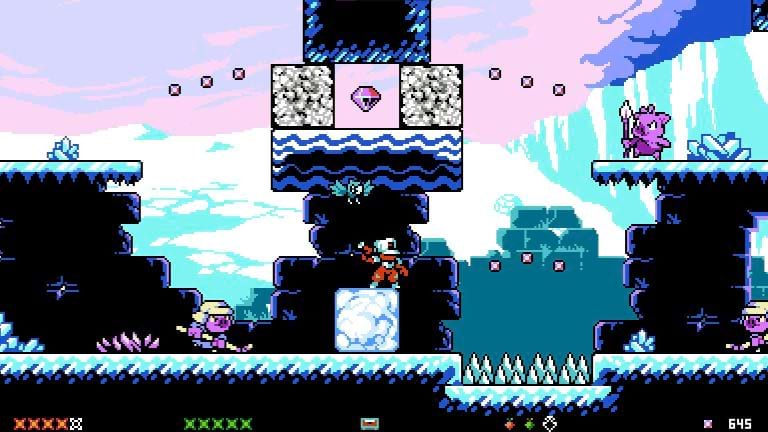
Bat Boy is a 2D side-scrolling action platformer, very much in the vein of classic Mega Man games. The protagonist is a baseball player who's friends are all into a various sport, and get possessed by some evil guy in the beginning of the game. Your friends become the bosses at the end of each stage (à la 8 evil robot masters) who give you a new ability after defeating them. I picked it up on a wim after seeing it being used as b-roll footage in a YouTube video and loved the Game Boy Color aesthetic.
I don't have a lot to say about this game, it kind of does exactly what you would expect or want out of a game like this. The gameplay is decent, it can be challenging in some portions and can be a little frustrating in others. It functions quite similarly to the classic Mega Man games, with the exception that your attacks are primarily melee based. This makes some sections annoying to get through. There are some neat side challenges the game offers which reward you with a power up at the end of them. I didn't actually end up beating all the stages in the game. I had a couple stages left and didn't have any desire to continue playing. I feel as if it is going to just be more of the same ok game loop.
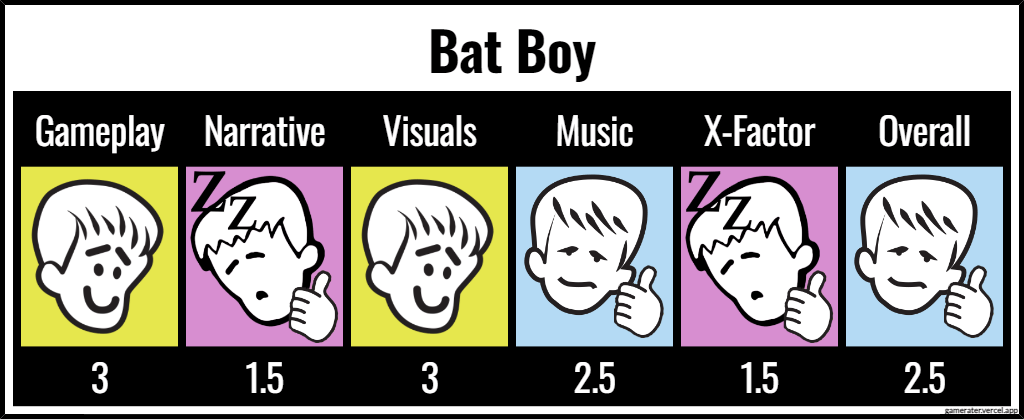
Pepper Grinder
This was a game that I was looking forward to playing after seeing the reveal trailer, maybe during a Nintendo indie showcase? Pepper Grinder is another 2D action platformer with a very cute pixel art style (I have a type). The main gameplay gimmick is that you have a drill that lets you burrow into soft environments and sorta swim like a dolphin. It blends a bunch of various game styles throughout the entirety of the game which leads to an overall kind of confusing game feel. It almost seems like the game didn't know what exactly it wants to be. Some levels your drilling and trying to go maintain a high speed, which feels great, other levels you jump into a Metal Slug and just plow through buildings and enemies, and some levels you alternate between the two?
I feel as if the developer had a lot of ideas that they wanted to execute on, but didn't have enough runway to get them off the ground. The game is relatively short with 4 worlds of 5-6 levels each. The first world focuses on the main mechanic of drilling through the environment and overall feels reasonably cohesive. but then they start throwing other mechanics in to each level and have little to no expansion on them in future levels (with some exceptions). There are a lot of good ideas in the game but they can feel pretty half-baked or extremely rushed. If there were more levels with a greater focus on individual ideas that blended better with the main mechanic of drilling, this game could be fantastic. However, with how few levels there are and how little opportunity the gameplay is given to shine, it ends of feeling like a bit of a mess.
The bosses in the game feel miserable to fight. They have too much health and all have a very basic pattern to play around. I get the sense that they designed the last boss first (which I thought was the best made of the 4) and worked backwards removing mechanics. Platformers have such under-explored space in boss design. They always boil down to some dude at the end of world you need to jump on X number of times. Having them be incorporated into levels, or even something basic like making it a race is such a step up from this tired formula. I would like to formally request that platforming games please stop adding bosses to their games just because they feel like they have to.
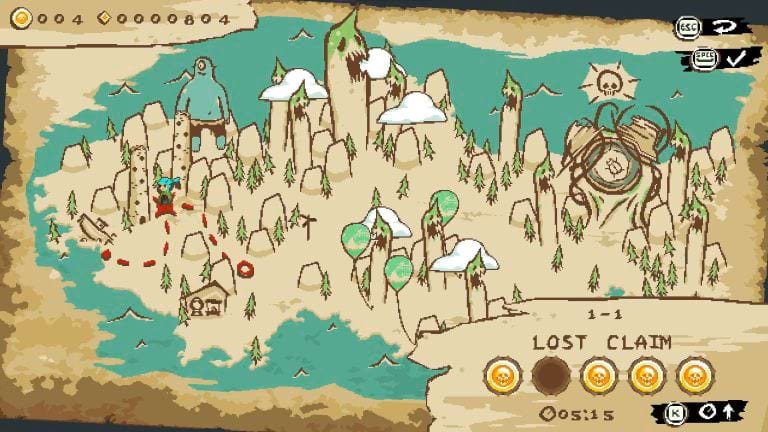
All that being said, I did play through the entire game and enjoyed it. I really like the visual style and the world map and music evokes a sort of Yoshi's Island / Yoshi's Story feel with its storybook aesthetic. There are a small number of collectibles and extras in the game such as a sticker book, which is cute but doesn't really add much. Overall this is one of those games where you can skip out on, or wait for a sale if you are interested. It's a bit unfortunate because with some more time in the oven I feel like this could've been a really great game.
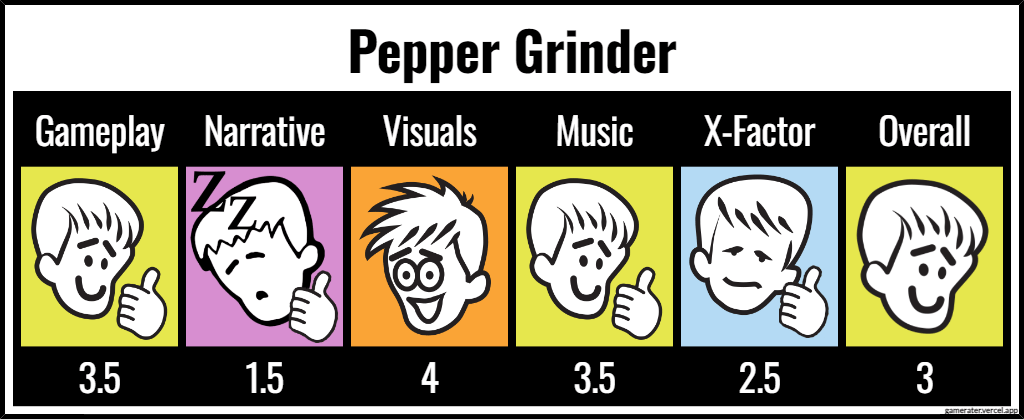
Penny's Big Breakaway
This game wasn't on my radar at all up until I happened across Trihex planning a speedrun route for the game on his stream. Out of curiosity, I stayed for a little while to watch. Being a 3D platforming game with emphasis on maintaining your character's speed and momentum, it didn't take long to convince me that it would be something I would enjoy. Since it was a new release I put it on my Steam wishlist with the expectation of picking it up on sale in the distant future. Less than a couple months later, to my surprise, it went on a pretty sizeable sale. I decided to just buy it and give it a go.
The main mechanic in the game is that you have a yo-yo which allows you to perform a variety of tricks which add to a combo metre. You can do things like double jumping with it, swing mid-air, launch yourself forward for a burst of speed, and ride on it like a unicycle. There are a handful more, but these are generally the main movement options used to get around. In addition to your basic movement options there are also some power-ups in certain levels that will give you one-off effects such as flying up like a helicopter. The controls combined with all these options are a bit overwhelming at first, but after stumbling through the early levels I really started to understand the flow of the game and how to keep a combo and my speed going while navigating through the levels.
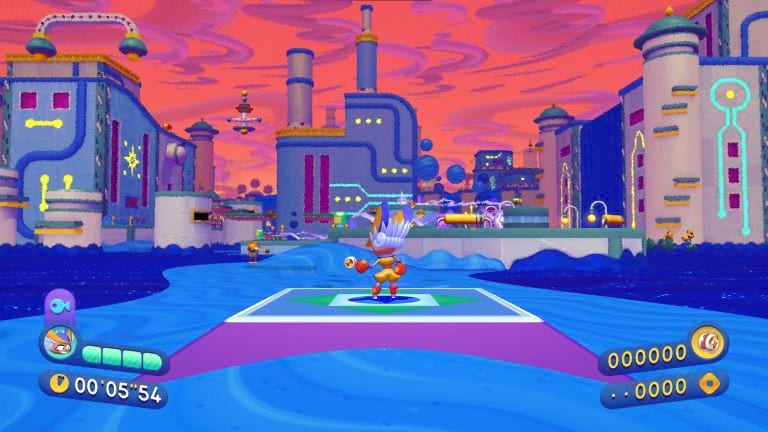
The levels themselves are all pretty well made. They all offer collectibles to find and have quite a few branching paths to them. Given time with the yo-yo mechanics it isn't that hard to fly through a level totally jumping past small sections. They are designed with a healthy variety of ways to path through and reward repeat visits. Whether I wanted to look for secrets, speed through levels, or try and go for a high score by getting a huge combo, every level felt well designed with each purpose in mind.
I really enjoyed the bright circus theme and pastel visuals in the game. The environments have a pretty chill vibe to them as well. The characters and story were pretty cute and was overall a bit silly which I enjoyed. My one big negative I have for the game is again, the boss fights. They had a couple good ones in there which were races, but I would like to formally request one more time to please stop putting bosses at the end of every world in your platforming game just because.
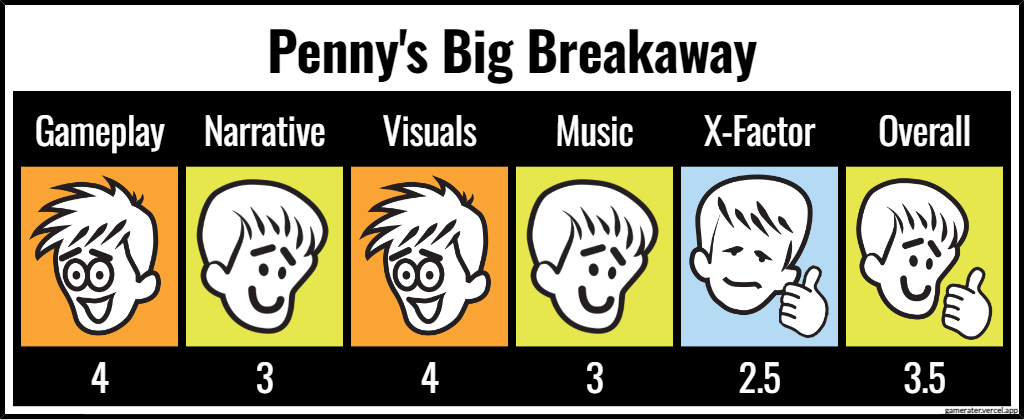
Castlevania: Symphony of the Night
I always enjoy playing a game that I never was able to as a child, but is culturally revered and always placed in greatest games of all time lists. It's always a fun and unique experience, and going in it's hard to not be thinking of "Is this game actually good or just fondly remembered?". For Symphony of the Night in particular, it's almost a little embarrassing that I haven't played it yet considering how much of a fan I am of the rest of the franchise. Considering, this is the game in the series. The one that begat the dreaded word (no I will not say it, but you know the one).
Too put it simply: this game is good, it holds up. It offers pretty much everything you could want in the genre. It's almost shocking how good it is considering how many games came after it, and how little those games changed. It makes a lot more sense now after playing it at how the Castlevania game series has essentially died. It's like they made their one good game of a particular style and then just tried to ride that wave for as long as they could. Don't get me wrong, future installments are all mostly great games in their own right and do different things, but for the most part they don't really innovate or iterate.
All that aside, I had a great time playing it and did pretty much everything available in the game. There are a ton of really cool mechanics and systems in the game that I wish were a bit more fleshed out (re: future games not iterating well). The motion input spells were really cool and I had no idea they were a part the game. I can picture a game in my mind's eye where that is the main combat system and it being really fucking cool. Playing around with weapons and equipment to see what special hidden properties they had was so much fun. I had to look things up and read about different items because some of the mechanics have schoolyard rumour level type of stuff baked into them, which was very fun to read and try out.
The game has weapons that interact with different kinds of enemies in positive and negative ways, but ultimately its limited enough to where it doesn't feel like I really needed to care about my loadout for specific bosses or areas of the castle. The scaling in the game is also so poorly balanced. In the beginning you die at a pretty reasonable rate and have to be careful. Fairly quickly after that you just start not taking any damage and don't have to worry about enemies at all. This happens again at the midpoint where suddenly you are taking ⅕ to ¼ of your health in a single hit, but after some time you go back to taking negligible damage.
Overall I think the game stands the test of time and I understand it's inclusion in the upper echelon of the gaming giants. I don't necessarily agree with it being there, but it has weight being the first of its kind. At the time of release this would have been a mind blowing game.
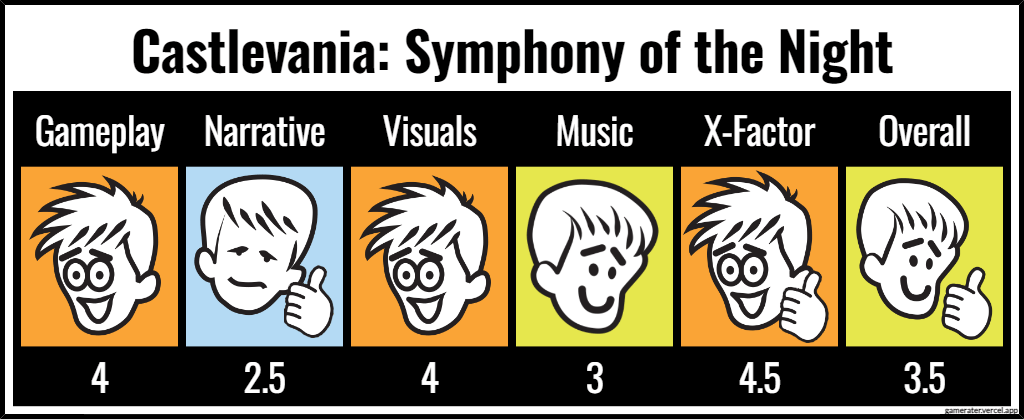
The Game of the Third Award™
I'm gonna give a Game of the Third Award™ to a game on each of these tri-annual lists that I'm going to be doing.
The nominees are:

Immortality
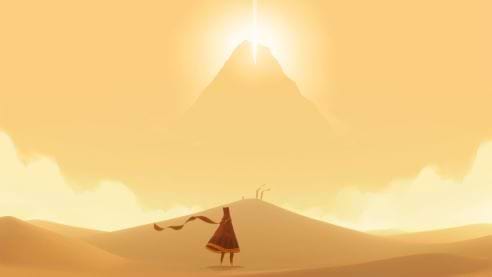
Journey
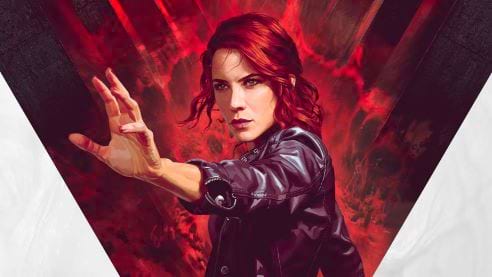
Control
And the winner is...
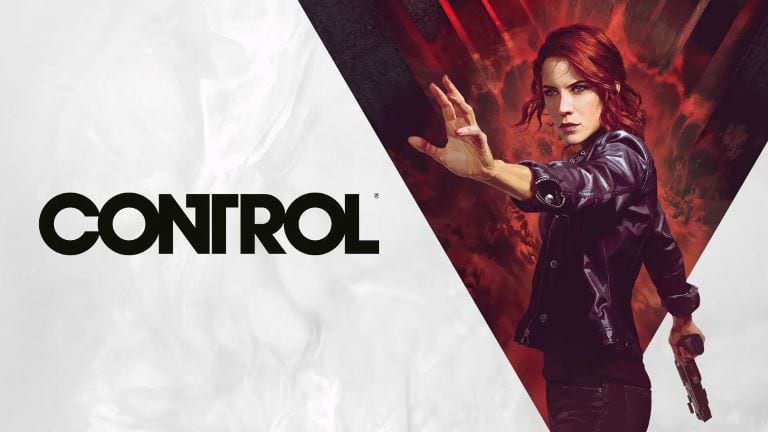
My winner for the Game of the Third Award™ is Control. I did not expect to like the game as much as I did prior to playing it. The studio makes great stuff and their vibes are totally inline with mine.
Conclusion
Writing this took me so much longer than I expected it would take. I originally wanted this up near the beginning of May, but ended up taking a couple extra weeks getting everything written, edited, and new components added in. I'll take this as a lesson learned and either write an outline or portions as I feel throughout the year as opposed to all at once.
My initial plan was to do a relatively short single paragraph review for each of the games, but it turns out I had a lot more that I wanted to say for many of them. I did start of trying to write single paragraphs but it didn't feel right for the few games I did that for. I guess I ended up wanting something different from this blog post than I initially had anticipated. If you stuck with me all the way through to the end, thank you, sincerely. Despite taking hours longer than I wanted to make this, I enjoyed writing all of it and I hope you enjoyed reading it. Even if you just read a couple you were interested in I hope you got something out of this, even if it is just that you think my taste in games is the total opposite of yours.
Thanks for reading!